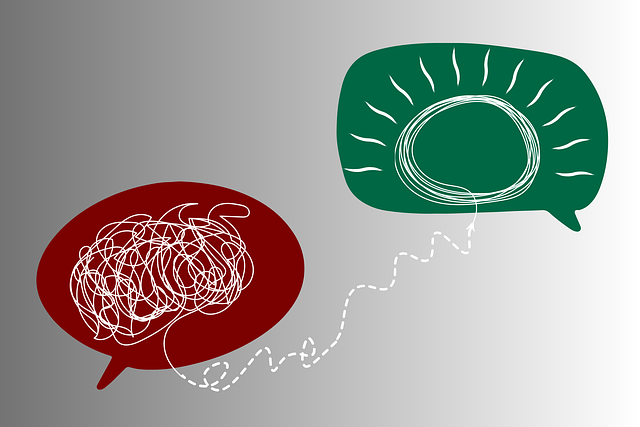Denver Codependency Therapy focuses on empowering individuals with coping skills for emotional challenges, fostering resilience and personal growth. Through Coping Skills Development, clients learn stress management techniques, conflict resolution, and self-care practices tailored to their unique backgrounds. This holistic approach integrates mindfulness, physical activities, and creative outlets, enhancing emotional intelligence and mental wellness. By cultivating healthy coping mechanisms, individuals can effectively navigate Denver's high-stress environment, reduce anxiety, and lead more satisfying lives.
In the realm of mental health, coping skills development is a pivotal aspect of overcoming codependency in Denver. This article delves into the intricate process of enhancing resilience and fostering self-care through effective strategies. We explore ‘Understanding Coping Skills and Their Significance in Denver Codependency Therapy’, providing insights on identifying personal coping mechanisms. Furthermore, we present tools to build resilience, promote healthy coping mechanisms, and integrate these skills into daily life for sustained growth.
- Understanding Coping Skills and Their Significance in Denver Codependency Therapy
- Identifying Personal Coping Strategies: A Key Step in Healing
- Building Resilience: Effective Tools for Navigating Emotional Challenges
- Healthy Coping Mechanisms: Fostering Self-Care and Well-being
- Integrating Coping Skills into Daily Life: Sustaining Long-term Growth
Understanding Coping Skills and Their Significance in Denver Codependency Therapy

Coping skills are essential tools in navigating life’s challenges, and their role in Denver Codependency Therapy is profound. This therapeutic approach recognizes that individuals often struggle with unhealthy coping mechanisms, which can exacerbate codependent behaviors. By integrating Coping Skills Development into therapy, professionals empower clients to manage stress, regulate emotions, and make healthier choices. Such skills are vital for personal growth and recovery, especially in a dynamic city like Denver where high-stress environments can impact mental health.
Mental Health Education Programs Design tailored for Denver Codependency Therapy should focus on teaching effective coping strategies. This includes mindfulness techniques, emotional awareness exercises, and risk management planning for mental health professionals to guide clients safely through difficult situations. By fostering robust coping skills, individuals can break free from codependent patterns, enhance their overall well-being, and build resilience to navigate life’s complexities, ultimately leading to a more fulfilling life.
Identifying Personal Coping Strategies: A Key Step in Healing

Identifying Personal Coping Strategies is a pivotal step in the journey toward healing and growth, especially for those seeking Denver Codependency Therapy. This process involves delving into one’s unique ways of navigating life’s challenges, which can range from engaging in creative outlets like art or writing to practicing mindfulness or physical activities. By recognizing these personal strategies, individuals gain valuable insights into their coping mechanisms, enabling them to make informed decisions about which techniques best serve their emotional well-being.
In the context of Denver Codependency Therapy and beyond, understanding one’s coping strategies is essential for effective conflict resolution techniques. It also fosters the development of healthy self-care practices, which are crucial in managing mental illness stigma reduction efforts. Through this introspective process, individuals can learn to identify when their coping mechanisms become maladaptive and make positive changes to enhance their overall resilience.
Building Resilience: Effective Tools for Navigating Emotional Challenges

Building resilience is a crucial aspect of coping skills development, enabling individuals to navigate emotional challenges with greater ease. Denver Codependency Therapy emphasizes the importance of fostering adaptability and strength in the face of adversity. Through targeted interventions and personalized strategies, individuals learn to recognize and manage their emotions effectively. By mastering self-awareness exercises, clients develop a deeper understanding of their triggers, allowing them to respond rather than react during stressful situations.
Integrating conflict resolution techniques into therapy further equips individuals with essential tools for addressing interpersonal difficulties. Cultural sensitivity in mental healthcare practice is also paramount, ensuring that therapeutic approaches are tailored to each client’s unique background and experiences. This holistic approach empowers people to build resilience, enhance their emotional intelligence, and lead more fulfilling lives.
Healthy Coping Mechanisms: Fostering Self-Care and Well-being

Healthy coping mechanisms are essential components of navigating life’s challenges and maintaining mental wellness. Fostering self-care practices is a proactive approach to managing stress and preventing burnout, which is particularly relevant in today’s fast-paced world. By prioritizing self-wellbeing, individuals can develop resilience and better cope with adversity. Denver codependency therapy offers valuable tools for cultivating healthy coping strategies, empowering clients to enhance their mental health and overall life satisfaction.
One effective way to promote self-care is through the development of a structured routine. Mental wellness coaching programs emphasize the importance of setting aside dedicated time for activities that nurture both mind and body. This includes engaging in regular exercise, practicing mindfulness or meditation, maintaining a balanced diet, and ensuring adequate sleep. By incorporating these practices into daily life, individuals can better regulate their emotions, reduce anxiety, and improve overall mental health. Self-care routine development is a key aspect of burnout prevention, allowing people to recharge, regain balance, and approach challenges with renewed energy.
Integrating Coping Skills into Daily Life: Sustaining Long-term Growth

Integrating coping skills into daily life is a crucial step for sustaining long-term growth, especially in navigating the complexities of modern living. Many individuals, particularly those seeking Denver codependency therapy, often find that learning effective coping strategies enables them to manage stress, anxiety, and challenging emotions more adeptly. By incorporating these skills into their routine, they can foster a sense of inner strength development, which is vital for maintaining mental wellness over time.
This process involves practicing mindfulness, engaging in self-care activities, and adopting healthy ways to express and regulate emotions. For instance, individuals might learn to utilize relaxation techniques such as deep breathing exercises or meditation to soothe their minds during stressful situations. Similarly, developing hobbies or pursuing creative outlets can serve as a therapeutic outlet for emotional expression. Through dedicated practice and consistent application, these coping skills become integral parts of one’s lifestyle, contributing to enhanced mental wellness coaching programs development.
Denver Codependency Therapy emphasizes the vital role of coping skills in personal growth and emotional well-being. By understanding and adopting healthy coping mechanisms, individuals can effectively navigate life’s challenges, fostering resilience and self-care. This comprehensive approach, outlined in our article, provides practical tools to identify and integrate coping strategies into daily routines, promoting long-term mental health and healing.














